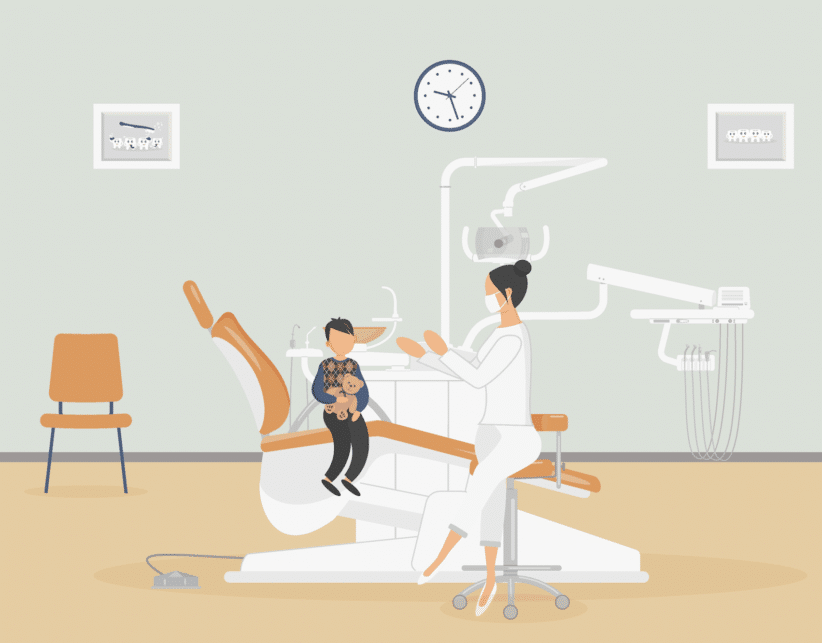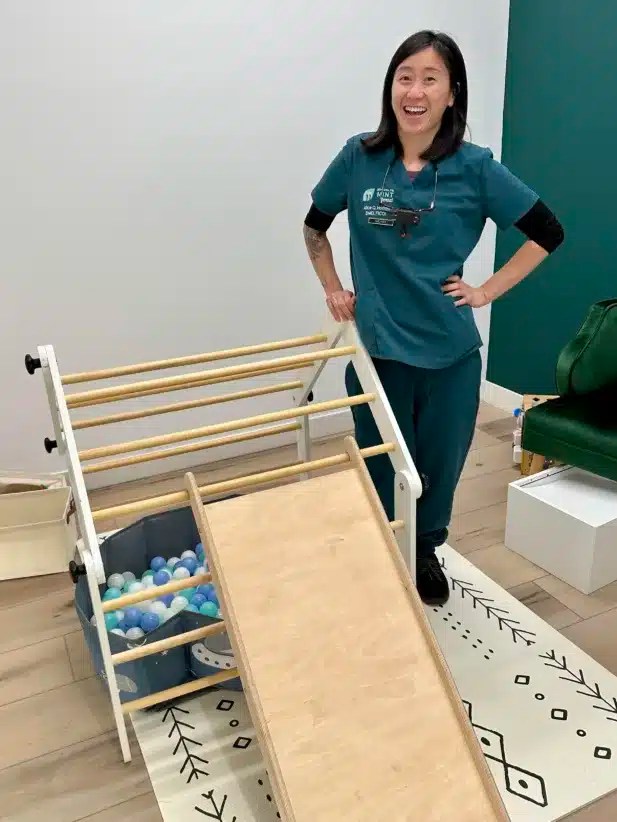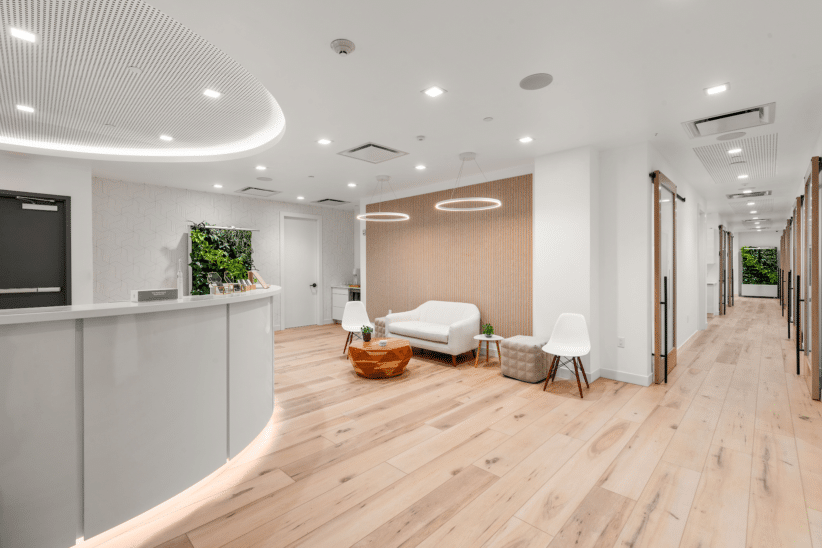Your Neurodiverse Child’s Dental Visit: An Expert Shares Guidance
[ad_1]

Your Neurodiverse Child’s Dental Visit: An Expert Shares Guidance
Not many of us go to a dental office excitedly; I still, from childhood visits, have needle fear. You know that long silver needle that goes in your mouth? Just why? I ask myself any time I’m in the dental chair. This is why, as parents, we can all understand why kids may face challenges when visiting the dentist. Imagine how sensory or kids with disability challenges may feel on these visits. As a mom with a child on the ASD spectrum, dental visits are one of the most challenging of doctor visits as they incorporate things my child hates to do, like sit still and have you look into his mouth.
Like most special needs parents, we not only want doctors to get our kid; We need you to vibe with all the uniqueness they bring to the table or rather the chair- for these visits can be nerve-racking for them and us parents. This is why when I found Dr. Alice Hoang at Brooklyn Mint Dental, I knew we may have found ‘our person.’

Dr. Alice specializes in treating neurodiverse patients, both adults and children. The office aims to make dental visits more practical and enjoyable, which isn’t easy if you have an anxious child. I was super impressed not only with Dr. Alice and her entire office, who took the time to get to know my son, but how she slowly worked to make him comfortable and was able to get him in the medical chair without him once freaking out (she was ready with the weighted blankets and his favorite shows-brilliant.) I appreciated Dr. Alice’s advice about using a gentler three-sided toothbrush, which can do more when your child has limited teeth brushing time, and using toothpaste with fun flavors. Most notably, her understanding and natural caring personality that most special needs parents know our kids have a superpower of knowing who is real and who is not and gravitating only toward the people who naturally connect with them.
I asked the doctor for some pointers for parents wondering what dental office may work for them and the questions they need to ask when choosing a dentist.
How should parents approach long-term dental care planning for special needs children?
The more that guardians are mindful of their child’s triggers, sources of comfort, communication style, and behavioral profile, the easier it is for a provider to tailor their care to be more approachable. When we care for special needs children, the guardian’s input is uniquely critical to the care of their children. Appointments should be on the shorter side, especially at the beginning for special needs children, so they can get acclimated with the space and staff. Easing into treatment slowly can prevent fear leading up to future dental visits.
I am not physically or mentally challenged, yet I am still not a fan of dental visits, so what strategies work for you when you have a patient with high anxieties or sensory challenges?
The tools we use for our sensory-sensitive patients work for even the most anxious patients. Ultimately, our amenities are intended to ease behavioral management of our patients in most circumstances, no matter the patient’s diagnosis.
What should parents look for in a dentist when seeking treatment for this child with disability challenges?
The most important aspect of anyone’s care is finding a provider they trust and feel safe with. When seeking treatment for a child with disability challenges, this applies to both the guardians and the patient. My philosophy is meeting any patient where they are to help them achieve the highest level of dental health possible. I would encourage any guardian to find a dentist who values relationships with all patients, no matter their needs. Ultimately, dentistry varies from dentist to dentist, and the philosophy, values, and personality of the dentist shape the practice.
Psst…check out Financial Goals for Kids: How to Set Them and Why It’s Important
Is it essential for the doctor to have parental involvement, or should they (the parents) step back a bit?
Collaboration is an important aspect of general dentistry, whether with other professionals and/or with our patients and their guardians. I would encourage parents to be involved in familiarizing and desensitizing the patient in the new environment. Establishing trust with the dentist helps build rapport and makes the patient feel comfortable with the parent or guardian’s support. When a treatment plan is suggested, dentists like to offer choices, explaining the differences of the pros/cons of each option, allowing both the patient and their guardian to choose the best option with the dentist’s support.
When booking the first appointment, I would also ask the dental practice if it’s possible to have shorter appointments initially for your child to get acquainted with their new environment. With time, your child will feel more in control of their environment and less anxiety towards a new but now familiar face.
You can ask if you can bring some items that might help your child in the chair such as weighted blankets or stuffed animals, their favorite show or music cued up, noise-canceling headphones and sunglasses. Involve your child in this process so they know they have some autonomy and their opinion matters. A boost in self-esteem and confidence does wonders for everyone.
Pertaining specifically to sleep needs, how does treatment for neurodiverse patients and/or patients with dental traumas differ?
The assessment and screening of sleep and airway will be the same. However, the treatment may vary, and patients with prior trauma or sensory sensitivity may reject the options available depending on the etiology and manifestations of their trauma or sensory sensitivity.
As a dentist who treats sensory-sensitive patients and children with disabilities? What measures do you take to make the dental experience more comfortable for the kids and parents?
When we created Brooklyn Mint, we wanted to put the most anxious patients at ease, whether they are triggered by sensory stimulation or by the environment.
In every treatment suite, we have individualized speakers for music (or white noise), a television with noise-canceling headphones, massaging heated eye masks, cooling eye masks, weighted blankets, a weighted stuffed toy, microfiber blankets, light dimmers, a selection of fidget toys, guided meditation virtual and traditional nitrous oxide as well as an option for moderate sedation. While each amenity we offer helps elevate the patient experience, each is also very intentional and evidence-based. We also have a children’s sensory room with a nursing chair for any chest-feeding parents. More importantly, our doctors and team can ease the most anxious and/or sensory-sensitive patient.
When a patient receives our initial forms, there is an “Optional Handle Me with Care Questionnaire.” When patients (or their guardians) decide to complete this form, it allows us to customize the care of our patients before they even step through our doors. We can cue preferred television shows and music, dim the lights, have any amenity readily available, and customize our approach for each patient.

Dr. Alice Hoang can be found at Brooklyn Mint Dental, 567 Pacific Street, Suite B, Brooklyn, NY 11217. 718-360-0365
[ad_2]
Source link


